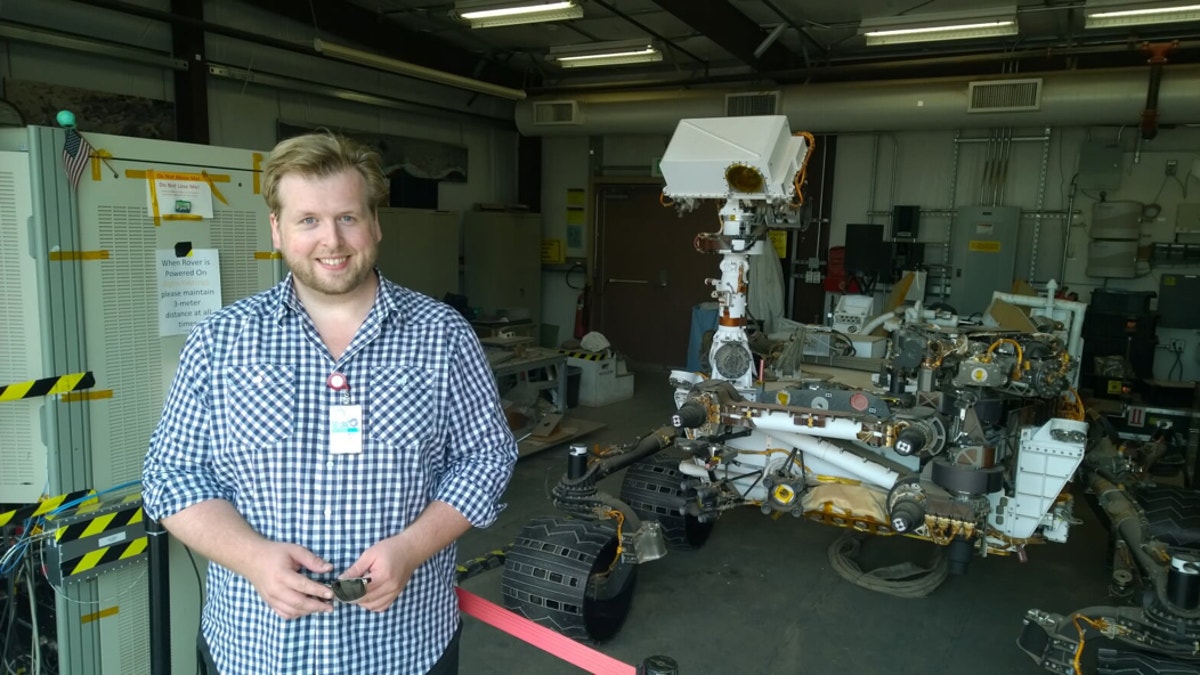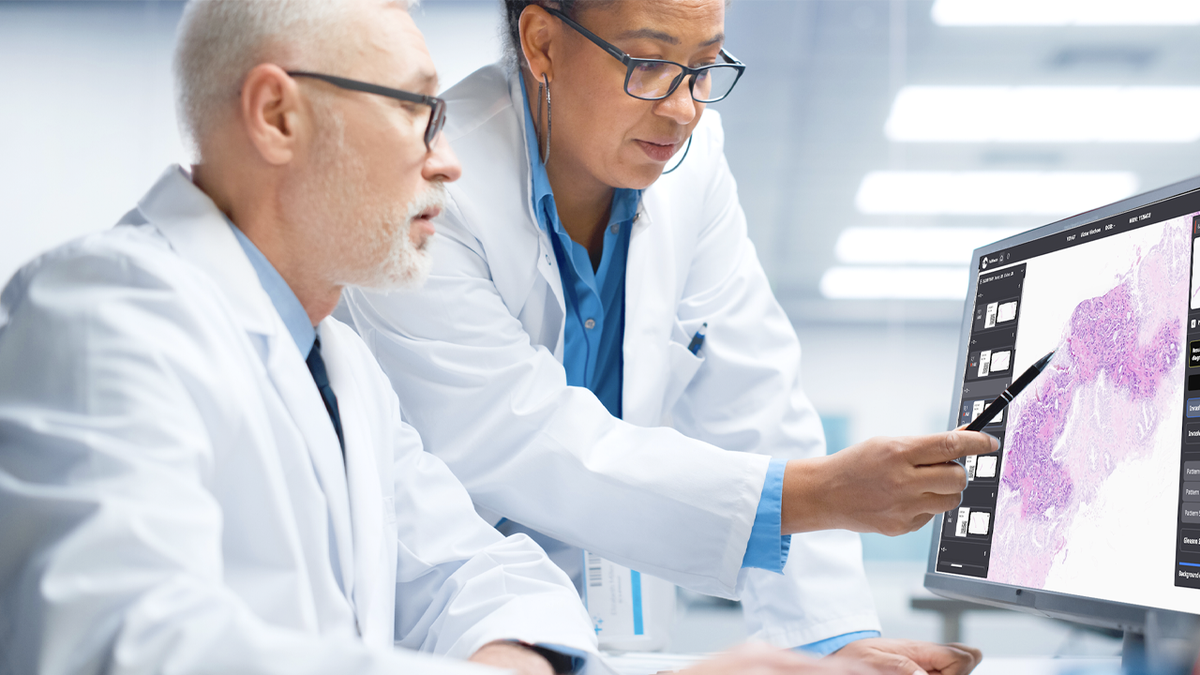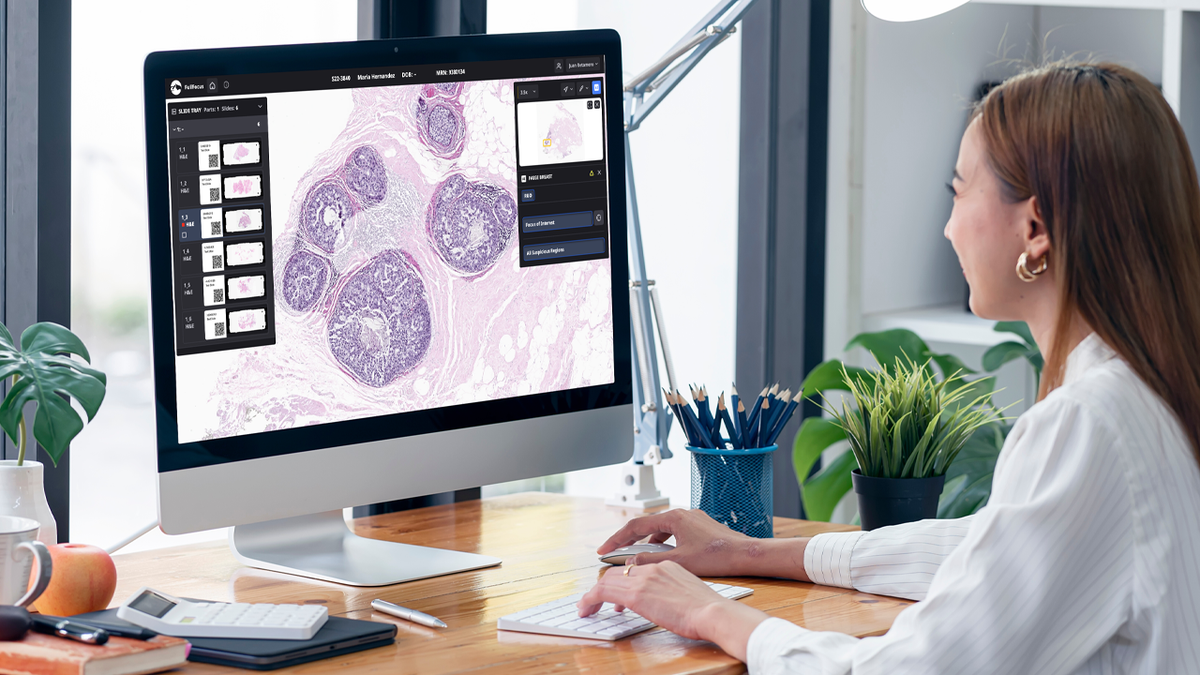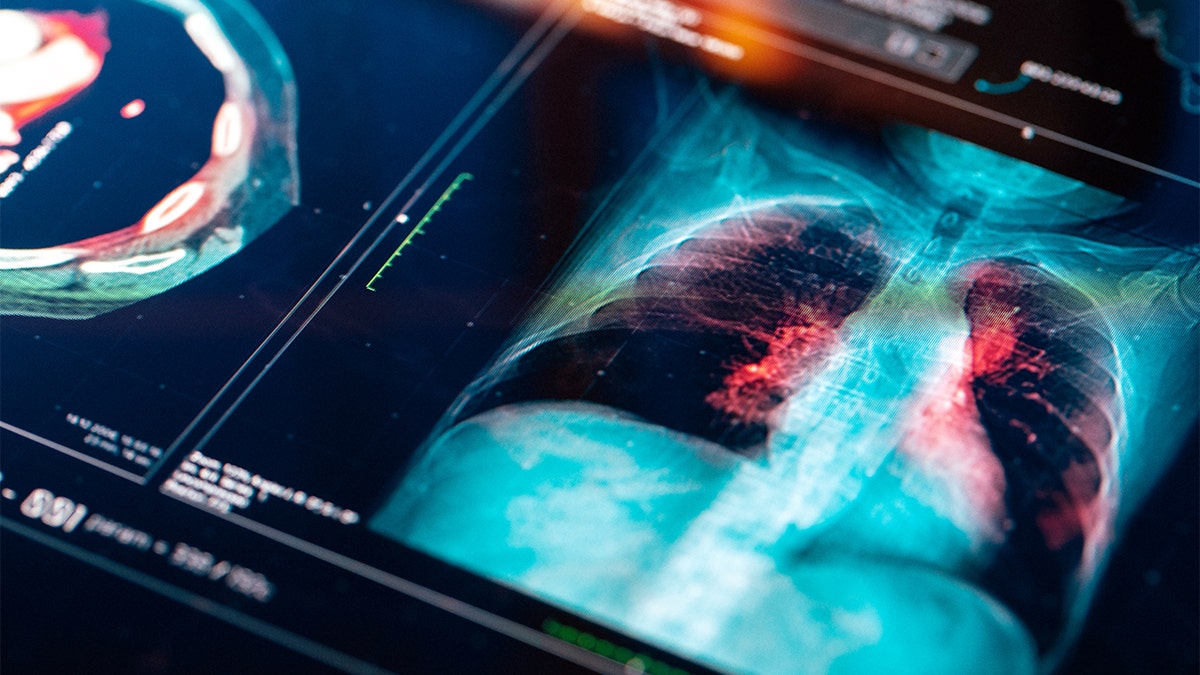Scientist reveals how artificial intelligence is changing the diagnosis and treatment of cancer
Thomas Fuchs, the Dean of Artificial Intelligence and Human Health at Mount Sinai in NYC, said AI will be needed to retain the standard of care in the U.S.
Artificial intelligence (AI) is helping physicians to diagnose cancer more accurately at much faster rates and at a lower cost than previously possible, according to a scientist working in computational pathology.
Dr. Thomas J. Fuchs, the Dean of Artificial Intelligence and Human Health at Mount Sinai in New York City, also works as the chief scientific officer at Paige AI, a company using AI to detect and treat cancer.
The latest study from the company tasked 16 pathologists with the review of 610 whole-slide images prepared at multiple institutions globally. They reviewed the slides once without assistance, and then again with assistance from the Pathology Artificial Intelligence Guidance Engine (Paige AI). When Paige AI was used, diagnostic errors reduced by 70%.
Today, Paige’s AI for prostate cancer, Paige Prostate Detect, is the only FDA-approved AI-powered digital pathology product, after three years of cooperation with the agency.

Dr. Thomas Fuchs, a former research technologist at NASA’s Jet Propulsion Laboratory, stands in front of the Mars Curiosity Rover. (Dr. Thomas Fuchs)
[That approval] shows that a combination between human and machine can lead to better outcomes for patients and all that was achieved without the increase of false alarms," Fuchs said.
The Machine learning techniques the company created allow them to train directly from pathology reports to learn from images with millions of cells.
"You need data that represents reality," Fuchs said. "So, the same way a doctor, especially a pathologist, has to look at tens of thousands of these microscopic slides to really understand what cancer looks like so they can find it in tissue from patients, in the same way, an AI system has to look at those same slides."
"It’s like Google Maps for these very large slides," Fuchs later noted.
Fuchs said AI has been shown as an "utterly positive" addition to the work of pathologists and can significantly impact patient care by building better tools for physicians.
For example, diagnosing breast metastasis and lymph nodes is tedious and can take a long time.
"It’s like looking for needles in a haystack," Fuchs described. Sometimes a patient will have tiny cancer and lesions of a few cancer cells within millions of normal cells. Regarding physicians, the technology helps to ensure an accurate diagnosis.
"It allows pathologists to be not only faster and more accurate but also gives them a peace of mind that truly found every little bit of cancer," he added.
Fuchs said that Physician-facing SAS AI and analytics software, like Paige AI, can help with the enormous anxiety of a diagnosis. Where previously, a patient may have to wait weeks to find out if their situation is a false alarm, AI support can make an "enormous difference."

Paige researchers have created novel AI applications that have the ability to transform doctor workflows and increase diagnostic confidence. (Paige AI)
"We can rank all the cases and have the suspicious ones ranked first so that pathologists can address them first and that means faster turnaround time for the patients," Fuchs said, noting the impact for a patient is "drastic but often invisible."
The same techniques used to find and detect cancer were previously implanted for the Mars Curiosity Rover to differentiate terrain types, such as sand versus gravel, to avoid potential mission-ending obstacles.
Fuchs worked on these techniques as a technologist and early pioneer of AI at NASA’s Jet Propulsion Laboratory. He also noted that the images captured by telescopes orbiting the solar system are the same size as the slides used in modern pathology.
"A lot of these pattern recognition techniques can be applied from the microscopic world to the macroscopic world," Fuchs said.
According to Fuchs, one of the most critical aspects of AI in the medical field is its ability to help democratize access to healthcare.
Paige AI currently works on 14,000 patients out of 800 institutions in 45 countries globally.
AI can also detect very subtle changes in how cancer grows that relates to the underlying molecular composition of the cancer. One example of this detection could involve how some mutations in the cancer genomes could lead to different growth patterns.
USING AI TO CHALLENGE DEATH'S FINALITY

AI is assisting pathologists in determining overall tumor percentage, tumor length and categorizing areas suspicious for cancer. (Paige AI)
In many cases, a hospital would want to sequence a patient to find out what drug works. Unfortunately, the process is typically slow and expensive. Furthermore, very few places engage in that type of work regularly and most cancer patients do not have access to it.
In this case, Fuchs said AI can help evaluate many of these mutations directly from the diagnostic tissue sample, from the biopsy, immediately at the point of care, regardless of where it is located.
"It could be a large reference lab or a community clinic, and you get these results immediately and at a much lower cost than if you waited five weeks for a sequencing result," he added.
AI also has applications in determining what drugs will work for what patients. It will tell you, in many cases, not all, if a patient would benefit from a particular drug because of a specific mutation gleaned from available slides.
The use of AI in healthcare goes much further.
Today globally, there is more data produced in healthcare than finance and entertainment combined. In particular, the field of healthcare pathology is by far the largest user of data. AI can help to sort through this data at a much faster rate than humans.
CAN ARTIFICIAL INTELLIGENCE PREDICT THE WEATHER MONTHS OUT? THIS COMPANY SAYS IT CAN
However, one of the biggest hurdles to applying AI in pathology is that not all pathology is digital.
"The vast majority of pathology in the US is practiced like 150 years ago. It’s a human looking through a glass microscope onto a glass slide, physically moving around that slide and trying to find cancer and then based off the experience of that single person assess what it is," Fuchs said.
"One thing I always emphasize is that today patients are dying not because of AI but because of the lack of AI and we will look back at these times in just 10 or 20 years and we’ll shake our heads about the medieval ways we practice medicine because AI will change that and it has to change that," he added.
The technology could also significantly impact clinical operations, clinical workflow, ICU management and early detection with the goal of earlier discharge and much lower numbers of malnutrition in clinical practice.

Medical MRI scan on a digital screen. (iStock)
"Just to keep the standard of care, of cancer care in the US, you will need AI. In many other countries in the world, it’s much worse. Some countries only have 1 or 2 pathologists and there AI can have a drastic impact because patients just don’t get any meaningful care without the help of AI," Fuchs said.
Recent advancements in speech recognition and transcription technology have also provided new avenues for physicians to perform their job more efficiently, leading to more in-person time with patients.
"One of the largest sources of burnout for physicians is that they actually do not spend time with the patients but sit in front of their PC all day and have to type reports," Fuchs said.
CLICK HERE TO GET THE FOX NEWS APP
Today, AI can record the physician and the patient and transcribe the entire interaction or even summarize it and classify it into categories. Fuchs claimed that the new tech has allowed for a more pleasant experience, leading to less burnout on the physician side and allowing patients to get the complete focus of their healthcare provider.
"All of this hints at a fantastic future where AI can have a drastic impact. But again, we should not forget that many of these tools can be used today. A modern hospital will look for a solution in pathology," Fuchs said. "We do need AI today, and we do need AI to lessen the suffering of patients."












































